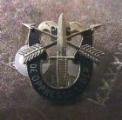* The world would be better without Gaddafi. But is that a vital U.S. national interest? If it is, when did it become so? A month ago, no one thought it was.
* How much of Gaddafi's violence is coming from the air? Even if his aircraft are swept from his skies, would that be decisive?
* What lesson should be learned from the fact that Europe's worst atrocity since the Second World War - the massacre by Serbs of Bosnian Muslims at Srebrenica - occurred beneath a no-fly zone?
* Sen. John Kerry says: "The last thing we want to think about is any kind of military intervention. And I don't consider the fly zone stepping over that line." But how is imposing a no-fly zone - the use of military force to further military and political objectives - not military intervention?
* U.S. forces might ground Gaddafi's fixed-wing aircraft by destroying runways at his 13 air bases, but to keep helicopter gunships grounded would require continuing air patrols, which would require the destruction of Libya's radar and anti-aircraft installations. If collateral damage from such destruction included civilian deaths - remember those nine Afghan boys recently killed by mistake when they were gathering firewood - are we prepared for the televised pictures?
* The Economist reports Gaddafi has "a huge arsenal of Russian surface-to-air missiles" and that some experts think Libya has SAMs that could threaten U.S. or allies' aircraft. If a pilot is downed and captured, are we ready for the hostage drama?
* If we decide to give war supplies to the anti-Gaddafi fighters, how do we get them there?
* Presumably we would coordinate aid with the leaders of the anti-Gaddafi forces. Who are they?
* Libya is a tribal society. What concerning our Iraq and Afghanistan experiences justifies confidence that we understand Libyan dynamics?
* Because of what seems to have been the controlling goal of avoiding U.S. and NATO casualties, the humanitarian intervention - 79 days of bombing - against Serbia in Kosovo was conducted from 15,000 feet. This marked the intervention as a project worth killing for but not worth dying for. Would intervention in Libya be similar? Are such interventions morally dubious?
* Could intervention avoid "mission creep"? If grounding Gaddafi's aircraft is a humanitarian imperative, why isn't protecting his enemies from ground attacks?
* In Tunisia and then in Egypt, regimes were toppled by protests. Libya is convulsed not by protests but by war. Not a war of aggression, not a war with armies violating national borders and thereby implicating the basic tenets of agreed-upon elements of international law, but a civil war. How often has intervention by nation A in nation B's civil war enlarged the welfare of nation A?
* Before we intervene in Libya, do we ask the United Nations for permission? If it is refused, do we proceed anyway? If so, why ask? If we are refused permission and recede from intervention, have we not made U.S. foreign policy hostage to a hostile institution?
* Secretary of State Hilary Clinton fears Libya becoming a failed state - "a giant Somalia." Speaking of which, have we not seen a cautionary movie - "Black Hawk Down" - about how humanitarian military interventions can take nasty turns?
* The Egyptian crowds watched and learned from the Tunisian crowds. But the Libyan government watched and learned from the fate of the Tunisian and Egyptian governments. It has decided to fight. Would not U.S. intervention in Libya encourage other restive peoples to expect U.S. military assistance?
* Would it be wise for U.S. military force to be engaged simultaneously in three Muslim nations?












Bookmarks